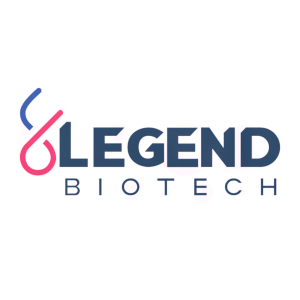Legend Biotech Begins Phase 1 Clinical Trial in the US to Evaluate Investigational Anti-CD4 CAR-T Therapy for Relapsed or Refractory T-Cell Lymphoma
Legend Biotech Corporation (NASDAQ: LEGN) has initiated a Phase 1 clinical trial for LB1901, an autologous CAR-T therapy targeting CD4 for adults with relapsed or refractory peripheral T-cell lymphoma (PTCL) and cutaneous T-cell lymphoma (CTCL). The trial follows FDA approval of the Investigational New Drug (IND) application and is led by Dr. Swaminathan P. Iyer at The University of Texas MD Anderson Cancer Center. This open-label, multi-center study aims to assess the safety and optimal dosing of LB1901 for patients with unmet medical needs in these serious conditions.
- Initiation of Phase 1 clinical trial for LB1901, targeting CD4+ T-cell lymphomas.
- FDA clearance of IND application demonstrates regulatory progress.
- Significant unmet medical need identified in PTCL and CTCL patient populations, highlighting potential market opportunity.
- None.
Insights
Analyzing...
The Phase 1 trial is being led by Dr.
“We are excited by the promise of LB1901, and we look forward to further evaluating the safety and tolerability of LB1901. Determining the optimal dose for subsequent evaluation is one of the key objectives of this trial,” said Dr.
T-cell lymphoma is a heterogeneous group of lymphoid malignancies that account for less than 15 percent of non-Hodgkin’s lymphoma cases in the US.i,ii PTCL comprises subtypes that are uncommon and often aggressive, with a 5-year overall survival of only
About the Clinical Development Program
LB1901-TCL-001 (NCT04712864) is a Phase 1 open-label, multicenter study of LB1901 in patients with histologically confirmed CD4+ RR PTCL (PTCL not otherwise specified, or PTCL-NOS, and angioimmunoblastic T cell lymphoma, or AITL) or RR CTCL (mycosis fungoides and Sézary syndrome). The primary objectives are to characterize the safety and tolerability of LB1901 and determine the optimal dose.
About
Cautionary Note Regarding Forward-Looking Statements
Statements in this press release about future expectations, plans and prospects, as well as any other statements regarding matters that are not historical facts, constitute “forward-looking statements” within the meaning of The Private Securities Litigation Reform Act of 1995. These statements include, but are not limited to, statements relating to Legend Biotech’s strategies and objectives; the anticipated timing of, and ability to progress, the Phase 1 clinical trial of LB1901 in RR PTCL and RR CTCL; patient enrollment in the LB1901 Phase 1 clinical trial; and the potential benefits of LB1901 or any of our other product candidates. The words “anticipate,” “believe,” “continue,” “could,” “estimate,” “expect,” “intend,” “may,” “plan,” “potential,” “predict,” “project,” “should,” “target,” “will,” “would” and similar expressions are intended to identify forward-looking statements, although not all forward-looking statements contain these identifying words. Actual results may differ materially from those indicated by such forward-looking statements as a result of various important factors. Legend Biotech’s expectations could be affected by, among other things, uncertainties involved in the development of new pharmaceutical products; unexpected clinical trial results, including as a result of additional analysis of existing clinical data or unexpected new clinical data; unexpected regulatory actions or delays, including requests for additional safety and/or efficacy data or analysis of data, or government regulation generally; unexpected delays as a result of actions undertaken, or failures to act, by our third party partners; uncertainties arising from challenges to Legend Biotech’s patent or other proprietary intellectual property protection, including the uncertainties involved in the US litigation process; competition in general; government, industry, and general public pricing and other political pressures; the duration and severity of the COVID-19 pandemic and governmental and regulatory measures implemented in response to the evolving situation; as well as the other factors discussed in the “Risk Factors” section of Legend Biotech’s Annual Report on Form 20-F filed with the
i Scherer LD, Brenner MK, Mamonkln M. Chimeric antigen receptors for T-cell malignancies. Frontiers in Oncology. 2019 March;9(article 126):1-10.
ii
iii Casulo C, O’Connor O, Shustov A, Fanale M, Friedberg JW, Leonard JP, et al. T-cell lymphoma: Recent advances in characterization and new opportunities for treatment. J Natl Cancer Inst. 2017;109(2):1-9.
iv Abouyabis AN, Shenoy PJ, Sinha R, Flowers CR, Lechowicz MJ. A systematic review and meta-analysis of front-line anthracycline based chemotherapy regimens for peripheral T-cell lymphoma. ISRN Hematol. 2011;2011:623924.
v Scarfo I, Frigault M, Maus M. CAR-based approaches to cutaneous T-cell lymphoma. Frontiers in Oncology. 2019;9(article 259):1-6.
View source version on businesswire.com: https://www.businesswire.com/news/home/20210913005052/en/
Investor Contacts:
jessie.yeung@legendbiotech.com or investor@legendbiotech.com
crystal.chen@legendbiotech.com
Press Contact:
tina.carter@legendbiotech.com
(908) 331-5025
Source:







